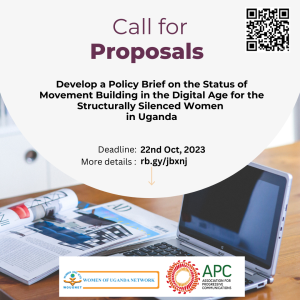The African digital ecosystem continues to evolve rapidly, shaped by global trends and technological advancements. From mobile connectivity to AI-powered tools, digital innovation has transformed how people live, communicate and access services. However, the pace and penetration of these technologies remain uneven, with many communities especially in rural and underserved areas, still struggling to fully benefit from the digital revolution.
As technology continues to expand its reach across the continent, critical issues around digital rights, inclusion, and accountability have become increasingly urgent. Who gets to use technology? Under what conditions? And whose voices are amplified or silenced in digital spaces? These questions were at the heart of the Digital Rights and Inclusion Forum 2025 (DRIF-25), which took place in Lusaka, Zambia under the theme: “Promoting Digital Ubuntu in Approaches to Technology.”
Ubuntu, a philosophy rooted in African values of humanity, compassion, and community, calls for a more people-centered and inclusive approach to technology development and governance. DRIF-25 brought together a broad range of stakeholders, including civil society, technologists, policymakers, and researchers to reflect on how to build digital ecosystems that respect rights, protect dignity, and promote equity for all.
WOUGNET at DRIF-25: Leading the Conversation on Gender Justice
As a long-standing advocate for gender-inclusive digital spaces, Women of Uganda Network (WOUGNET) was proud to actively participate in this year’s DRIF. In addition to engaging in various discussions and networking opportunities, WOUGNET hosted a session titled:
“Reclaiming Gender Justice in the Digital Age: Countering Backlash and Advancing Digital Rights and Equity.”
This timely session tackled the growing wave of patriarchal backlash against gender equality, particularly in digital and online spaces. The session brought together voices from across Africa and beyond, including partners from the Countering Backlash global research program to explore how this backlash manifests, what drives it, and how we can resist and reclaim digital spaces for women, girls and other marginalized groups.
Understanding the Backlash: A Threat to Gender and Digital Rights
The progress made in advancing gender equality is increasingly under threat. Across the globe, feminist activists, gender justice movements, and women-led organizations are facing a resurgence of regressive forces. This backlash is rooted in political, religious, and socio-cultural shifts that seek to reinforce patriarchal norms, suppress women’s voices, and curtail hard-won rights.
In the digital realm, backlash takes many forms:
- Online harassment and gender-based cyber violence
- Censorship of feminist discourse and content moderation bias
- Digital surveillance targeting women’s rights defenders
- Policies restricting reproductive health and bodily autonomy
- Disinformation campaigns aimed at undermining women’s leadership
These tactics not only silence women and marginalized groups but also infringe on their digital rights, curbing their freedom of expression, access to information, and ability to participate meaningfully in the digital economy.
WOUGNET’s Research and Insights on Countering Backlash
During the session, WOUGNET shared insights from ongoing research under the Countering Backlash global research program. This research explores the actors, drivers, power dynamics, and strategies behind gender backlash, both online and offline, within the African context, particularly in Uganda.
The findings reveal a coordinated effort to undermine feminist progress, often fueled by religious fundamentalism, populist politics, and digital disinformation. However, they also highlight emerging forms of resistance, feminist networks pushing back, digital safety trainings for activists and advocacy for more inclusive policy frameworks.
One key lesson from the convening was that countering backlash requires intentional, multisectoral efforts that center lived experiences, amplify marginalized voices, and prioritize long-term movement building. At the digital level, this means investing in safer, more inclusive platforms, designing gender-responsive tech policies, and equipping women and girls with the digital literacy and tools they need to navigate and thrive in online spaces and counter backlash.
Towards a Gender-Just and Inclusive Digital Future
The discussions at DRIF-25 underscored a fundamental truth that technology is not neutral. It reflects and reinforces existing power structures. If left unchecked, the digital world risks replicating and even amplifying the same inequalities we face offline. For this reason, the pursuit of gender justice in the digital age must be deliberate. It must involve confronting harmful narratives, building solidarity across movements, and holding tech companies and policymakers accountable. Above all, it must ensure that women, girls and marginalized communities are not just users of technology, but active designers, decision-makers, and rights-holders.
At DRIF-25, WOUGNET called on all stakeholders, governments, civil society, donors and tech developers to adopt a feminist, rights-based approach to digital inclusion. We urged them to integrate digital Ubuntu into policy, practice, and programming: to center human dignity, justice, and collective well-being in every digital initiative.
WOUGNET’s Ongoing Commitment
WOUGNET’s presence at DRIF-25 reaffirmed our commitment to creating safe, inclusive and empowering digital spaces for women and marginalized communities in Uganda and across Africa. As we continue to engage in research, advocacy and community-driven programs, we remain focused on amplifying the voices of those most affected by digital exclusion and gender-based backlash.
Through partnerships, dialogue and collective action, we will continue to challenge harmful narratives and promote digital equity, accountability, and gender justice for all.





